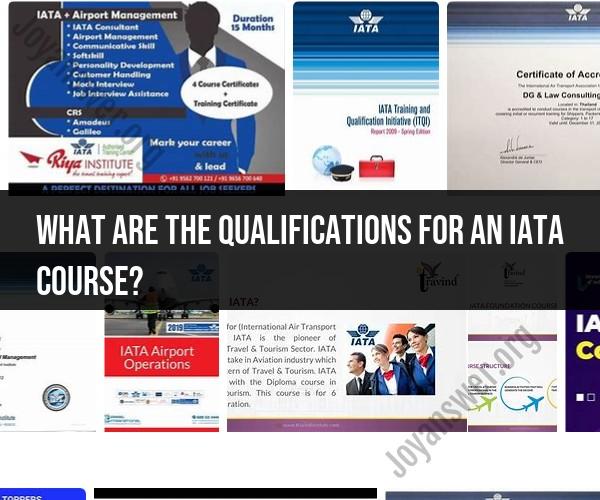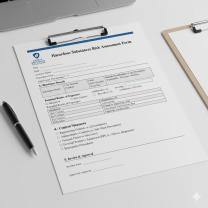What are the qualifications for an IATA course?
Qualifications for enrolling in an IATA (International Air Transport Association) course can vary depending on the specific course you are interested in, as IATA offers a wide range of training programs for various roles in the aviation and travel industry. However, there are some general qualifications and requirements that you may encounter when considering an IATA course:
No Formal Education Requirement: Many IATA courses do not have strict educational prerequisites, meaning you do not necessarily need a college degree or specific educational background to enroll. However, some courses may recommend or require a certain level of education or experience.
English Proficiency: Since English is the international language of aviation, IATA courses are typically conducted in English. A reasonable level of English proficiency is often required to understand course materials, participate in discussions, and complete assignments.
Basic Computer Skills: Some IATA courses, especially those related to airline and airport operations, may require basic computer skills. This can include using word processing software, spreadsheets, and online learning platforms.
Work Experience: Certain IATA courses, especially those focused on aviation management or specialized areas, may require participants to have relevant work experience in the aviation or travel industry. The level of required experience can vary.
Prerequisites: Some advanced or specialized courses may have prerequisites. For example, a course on aviation safety management might require prior completion of a basic aviation safety course.
Age Requirements: While there is generally no strict age requirement for IATA courses, participants are typically adults or individuals who have completed their secondary education. Some courses may have a minimum age requirement.
Membership: IATA offers benefits to its member airlines and organizations. In some cases, course discounts or preferential access may be available to employees of member organizations.
It's important to note that the specific qualifications and requirements can differ from one course to another. Therefore, it is advisable to check the course details and prerequisites on the official IATA website or contact the IATA Training team for accurate and up-to-date information regarding the course you are interested in.
Benefits of Taking an IATA Course:
Industry-Recognized Training: IATA courses are well-regarded in the aviation and travel industry, and completing a course can enhance your knowledge and skills in your chosen field.
Career Advancement: Many individuals take IATA courses to improve their qualifications and career prospects in the aviation, travel, and tourism sectors.
Networking Opportunities: Enrolling in an IATA course allows you to connect with professionals in the industry, providing opportunities for networking and collaboration.
Global Recognition: IATA is an internationally recognized organization, and its courses are valued worldwide, making them beneficial for those seeking a career in global aviation.
Updated Industry Knowledge: The aviation industry is dynamic, and IATA courses are regularly updated to reflect the latest industry trends, regulations, and best practices.
Before enrolling in an IATA course, carefully review the course description, prerequisites, and learning objectives to ensure that it aligns with your career goals and qualifications. Additionally, consider reaching out to IATA or the course provider if you have any specific questions about eligibility or requirements.












